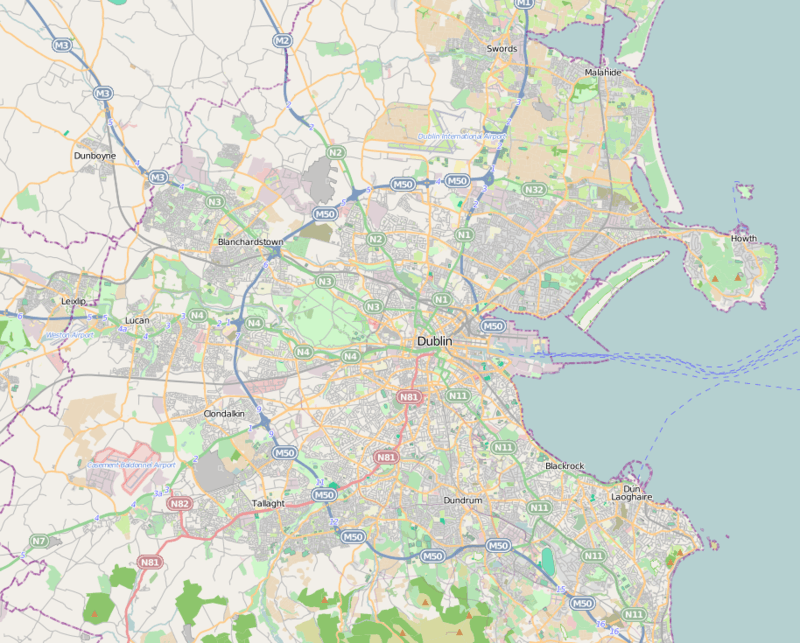Dunsoghly Castle
Dunsoghly Castle is a castle and a National Monument[1][2][3][4][5][6] located in the civil parish of St. Margarets, in Fingal, Ireland.
| Dunsoghly Castle | |
|---|---|
| Native name Irish: Caisleán Dún Sochlaigh | |
.jpg) | |
| Type | castle |
| Location | Dunsoghly, St Margaret's, Ireland |
| Coordinates | 53.426923°N 6.318328°W |
| Built | c. 1450 |
National Monument of Ireland | |
| Official name: Dunsoghly Castle | |
| Reference no. | 230 |
 Location of Dunsoghly Castle in Dublin | |
History
The castle was built around 1450 by Sir Thomas Plunket, Chief Justice of the Irish Common Pleas. It was continuously occupied until the 1870s by descendants of the same family, despite being a cramped Irish castle and uncomfortable by post-medieval standards. The four-storey tower of the castle has tapering corner turrets rising above the parapet.
The roof, which has served as a model for restorations at Bunratty Castle and Rothe House, is arch-braced with four oak principals; on each collar-beam stands a king-post supporting a purlin and cross-pieces below the ridge. The rafters are laid flat rather than on edge as in modern roofs and the framework covered with split laths.
There is a small chapel to the south bearing the year "1573" over the door, the Instruments of the Passion and the initials of Sir John Plunket and his third wife Jenet Sarsfield. Sir John was the grandson of Sir Thomas, who built Dunsoghly, and like his grandfather he presided as Chief Justice in one of the courts of common law. Jenet was a much married lady, Sir John being the fifth of her six husbands. On the west and south are remains of earthwork defences put up during the warfare of the 1670s.
References
- "Dunsoghly Castle, County Dublin".
- "Dunsoghly Castle, St.Margarets. co.Dublin c.1450".
- "Dunsoghly Castle".
- "Dunsoghly Castle – Ciara Meehan".
- "Archived copy". Archived from the original on 2016-05-11. Retrieved 2016-06-04.CS1 maint: archived copy as title (link)
- "Dunsoghly Castle, Co.Dublin".